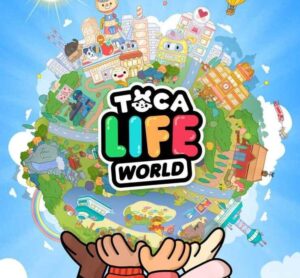AAA Budgets Under Scrutiny: RuneScape CEO Argues Efficiency Trumps $400 Million Spend
Popular Now
 Rust
Rust
 Toca Boca World
Toca Boca World
 Stumble Guys
Stumble Guys
 Geometry Dash
Geometry Dash
 Counter-Strike 2
Counter-Strike 2
 Warframe
Warframe
 BeamNG.drive
BeamNG.drive
 Grand Theft Auto V
Grand Theft Auto V
 CarX Street
CarX Street
 Free Fire
Free Fire
 LONDON, UK – The financial model of modern AAA game development has been cast under a critical light by the newly appointed CEO of Jagex, the studio behind the enduringly popular RuneScape franchise. In a bold commentary on the escalating cost of blockbuster titles, Jagex CEO Jon Bellamy asserted that studios can achieve “not so different results” by utilizing a fraction—perhaps even “a tenth”—of the staggering “$400 million budget” now associated with some top-tier projects, provided they execute their vision with precision and focus.
LONDON, UK – The financial model of modern AAA game development has been cast under a critical light by the newly appointed CEO of Jagex, the studio behind the enduringly popular RuneScape franchise. In a bold commentary on the escalating cost of blockbuster titles, Jagex CEO Jon Bellamy asserted that studios can achieve “not so different results” by utilizing a fraction—perhaps even “a tenth”—of the staggering “$400 million budget” now associated with some top-tier projects, provided they execute their vision with precision and focus.
Bellamy’s remarks position game development efficiency and creative singularity as the true accelerators of success, offering a compelling counter-narrative to the prevailing industry trend of budgetary bloat. This stance is particularly resonant amid widespread industry layoffs and heightened scrutiny over the sustainability of ultra-high production costs, which often necessitate massive sales just to break even.
 The AAA Cost Conundrum and the Rise of AA Success
The AAA Cost Conundrum and the Rise of AA Success
The conversation around unsustainable AAA budgets—a key industry keyword with high CPC relevance—has reached a fever pitch. A $400 million price tag represents a financial risk that demands exceptional, and often unrealistic, commercial performance. Bellamy, a veteran in the gaming space, pointed to recent successes that illustrate a more frugal yet creatively potent path forward.
Jon Bellamy, who took the helm at Jagex earlier this year, highlighted the breakout hit Clair Obscur: Expedition 33 as a prime example of this philosophy in action. The turn-based RPG has been widely lauded for its polish, ambition, and artistic merit, qualities typically reserved for games with significantly larger financial backing. Industry analysts have often characterized Clair Obscur as a ‘AA-class game,’ proving that mid-budget titles, when executed brilliantly, can capture critical acclaim and significant commercial success.
- The ‘A Tenth’ Philosophy: Bellamy suggests that a budget in the region of $40 million could deliver a product comparable in impact and quality to one costing ten times that amount, a striking proposition for investors and developers alike.
- Focus on Efficiency: The core argument centers on the principle that excessive funding can often mask inefficiencies, poor project management, and a lack of creative discipline, whereas tighter constraints necessitate smarter, more focused decisions.
- Inspiration for Developers: As Bellamy stated, “We’ve seen that from Clair Obscur and a bunch of others recently… and I think that that is a guiding light for many who might have been a bit disheartened coming out of a big studio.” This provides a beacon of hope for smaller, independent, and AA-sized studios looking to compete with industry giants without the need for unfeasible capital investment.
 The Human Cost of Bloated Budgets
The Human Cost of Bloated Budgets
Beyond the financial risks, Bellamy’s comments also touch on the human element of mega-projects. Large teams and prolonged, high-pressure development cycles frequently lead to burnout and the “human cost” of crunch. The sheer scale of development for a “$400 million budget” game often necessitates a bureaucracy that can stifle creativity and slow down the process, a sentiment echoed by other industry leaders. The success of lean, focused teams, like the one behind Clair Obscur, validates the model of achieving high-quality gaming experiences through passionate, efficient small teams.
Jagex’s Strategic Focus on Sustained IP Value
Bellamy’s perspective aligns closely with Jagex’s own strategy, which prioritizes the long-term health and integrity of its core IP, RuneScape. The studio’s enduring success over more than two decades, particularly with its player-centric approach to games like Old School RuneScape, serves as a powerful testament to the value of consistent, community-driven development over episodic, high-risk releases. His focus on “being so unbelievably hyper-authentic” as the differentiating factor in a saturated market further reinforces the belief that quality and genuine connection with the player base are superior to brute-force spending on flashy graphics and marketing.
This industry commentary, coming from the leader of one of the longest-running and most profitable MMO companies, is likely to fuel further debate on financial sustainability. In an era where players are increasingly discerning, the evidence suggests that smarter spending and laser-focused creative direction are becoming the new metrics for success, proving that a blockbuster game experience doesn’t always require a blockbuster budget.









